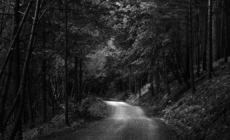-
Woman dies after being set on fire in New York City subway in ‘heinous crime’ - 3 mins ago
-
2024 NFL Week 17 Pick ‘Em: Predictions for FOX Super 6 by Chris ‘The Bear’ Fallica - 18 mins ago
-
Firefighters battle blaze, help homeless people evacuate vacant 4-story building in downtown L.A. - 20 mins ago
-
Police ‘Mystified’ After Woman Doused With Gas, Set Ablaze on Walk to Store - 30 mins ago
-
U.S. official says early indications Azerbaijan plane was hit by Russia - 40 mins ago
-
Times investigation: Shocking murders, lingering doubts in a California mountain town - 59 mins ago
-
Incredible. Fantastic. Tremendous. The College Football Playoff belongs on campus - about 1 hour ago
-
‘Baby Driver’ actor Hudson Meek dead at 16 after falling from moving vehicle - about 1 hour ago
-
Heat News: Jimmy Butler Agent Refuses to Comment on Latest Trade Rumor - about 1 hour ago
-
Mega Millions jackpot climbs to more than $1 billion - 2 hours ago
Brothers wrested reading from the upper classes
Any reasonably well-stocked home library of books – such as that at The Budapest Times hideaway – is sure to include a good sprinkling of titles from Pan Macmillan, the fourth-largest UK publisher in a well-populated field. The firm created by two Scottish brothers in Victorian London has grown from a humble bookshop near St. Paul’s Cathedral to an international multi-million-pound business.
How this came about is the subject of Sarah Harkness’s book about books, subtitled “How The Pioneering Macmillan Brothers Built a Publishing Powerhouse”. While this may sound like a rather esoteric topic, it turns out to have much fascination, from the family’s awful poverty and rudimentary education of a few years in the village school to a nice history of the growth of the publishing trade in Britain.
The family were crofters from the remote Isle of Arran, crofting being a type of land tenure and small-scale food production peculiar to the Scottish Highlands and islands. It was a tough life, and father Malcolm Macmillan died in his early 50s, worn out by hardship.
He left eight surviving children, of whom the two youngest were 10-year-old Daniel, born September 13, 1813, and 5-year-old Alexander, born October 3, 1818. As Harkness records, they had to make their way in the world with nothing to shape their lives but the moral precepts that were drummed into them by their mother and the understanding that work was hard, even painful, but necessary.
Daniel was apprenticed aged 10 to a bookseller and bookbinder. Alexander’s schooling ended at age 15, The two rose through wretched servitude to be masters of their own business. Between them they founded what is held to be not just a great publishing house of the Western world but a dynasty that within two generations would leap class boundaries to marry into the nobility and produce a British Prime Minister (Harold “[You’ve] never had it so good” Macmillan, 1894-1986, Prime Minister 1957-1963).
Raised in a strict Calvinist faith, the brothers believed the purpose of the book trade was to disseminate learning and moral uplift to the knowledge-hungry, half-educated masses. Alexander described himself as an “advocate for the ignorant”. In Victorian society, ignorance was seen not as a personal failing but a want to be remedied, closer to hunger, thirst or ill-health, and signalling a failure by society to nurture its members.
They fervently believed, Harkness writes, that access to good and affordable literature would bring young people to God, give them a moral code, and might ease the discord between the classes that led to political strife and unrest. Above all, they considered that everyone deserved the sheer pleasure and intellectual urge that books had given themselves.
The two men befriended, encouraged, shaped and published some of the greatest thinkers and writers of the 19th century – commissioning work from Britain’s most highly regarded mathemeticians, naturalists, geologists, novelists, poets, historians and scientists.
The brothers did not shy away from controversial political and religious subjects, and the company earned a reputation for quality and innovation. It became a beacon of stability and steady growth. The two men are described by their exemplary biographer as literary king- and queen-makers, as well as producing reliable textbooks and schoolbooks, and a number of popular periodicals such as “Macmillan’s Magazine”, “The Practitioner” and “Nature”.
Harkness says their success was due to their extraordinarily hard work and an uncanny instinct for unearthing authors with the most relevant messages, and who expressed these messages best, whether writing a philosophical tract or an adventure story for children. They could recognise how Victorian academics were producing dry inaccessible works, and they resolved to mould these into material that would attract the rapidly growing number of enthusiastic, book-hungry amateurs that they too had been. They were willing to risk a loss.
They founded the Macmillan firm in 1843, creating a different version of literature, accessible to the common man. When Alexander died in 1896, the complete bibliographic catalogue of the books he and Daniel had published between 1843 and 1889 had taken two years to compile and comprised more than 740 pages.
They received significant boosts from the strong sales of the novels “Westward Ho!” by Charles Kingsley (1855), “Tom Brown’s School Days” by Thomas Hughes (1857), “The Water-Babies: A Fairy Tale for a Land-Baby” by Charles Kingsley (1863) and “Alice’s Adventures in Wonderland” by Lewis Carroll (1865). The roster also included Henry James, Thomas Hardy, Rudyard Kipling, Alfred Lord Tennyson and H.G. Wells, with some 150 new titles a year.
Daniel was the business brain, while Alexander laid the literary foundations, but the former suffered a lifetime of ill health and knew he was living on limited time. Consumptive, and compelled to spend periods trying to get well in the healthy air of such seaside resorts as Torquay in Devon, he died aged 43 on June 27, 1857.
Alexander survived nearly 40 years longer and became the driving force before his own death on January 25, 1986, aged 77. He took on the responsibility of Daniel’s family as well as developing the company, with its shop in Cambridge and growing publishing business in London, including becoming publisher of Oxford University Press. A scrupulous man, Alexander cultivated the literary lights with his charming personality and popular soirées.
He also took the novel step for a British publisher of setting up a transatlantic operation in Manhattan, thus laying the groundwork to become the international powerhouse of today. He left its prosperity and direction safe for the next generation, and today Macmillan is one of the world’s largest and best-known publishers, with imprints in more than 70 countries. As the company evolved, major writers have included W.B. Yeats, Sean O’Casey, John Maynard Keynes, Charles Morgan, Hugh Walpole, Margaret Mitchell, C.P. Snow and Rumer Godden.
Sarah Harkness graduated from Oxford University in 1983 and was always fascinated by Victorian art and literature. Her first book was the biography “Nelly Erichsen: A Hidden Life” in 2018, an account of a feminist pioneer, translator, travel writer and book illustrator. Born in Newcastle, UK, in December 1862, Erichsen trained and exhibited at the Royal Academy.
The University of Buckingham awarded Harkness a Master of Arts with Distinction in Biography in October 2021, with her 40,000-word dissertation covering five crucial years in the career of Alexander Macmillan. She determined that the brothers’ success had not been served well by an affectionate “Memoir of Daniel Macmillan” edited by Thomas Hughes and based on correspondence between the two and other family letters, nor by a rather stuffy, one-dimensional biography “Life and Letters of Alexander Macmillan” by Charles L. Graves, nor by a rushed-off history “The House of Macmillan (1843-1943)” by Charles Morgan.
Harkness thus resolved that the brothers’ notable achievements were worthy of greater celebration. Her broad research took her to the British Library, to archives in the University of London, the Special Collections at the University of Reading and Macmillan’s own.
The documentation she drew upon is fulsome and has been skilfully assembled by this worthy enthusiast. It is a glowing and copious account of how literature devolved to be enjoyed by all the people, no longer the preserve of the upper classes.
Source link






























